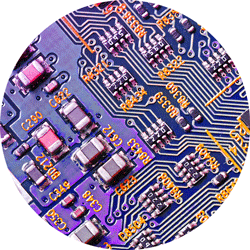Published in New Law Journal (LexisNexis) 24 May 2019
Lawyers seem to like to engage themselves in preparing detailed witness statements containing argument, comment and documentary analysis. Yet the law reports contain numerous examples of judges deprecating such over-elaboration which often entails non-compliance with the rules. Cases are often highlighted by the invaluable legal blogger, Gordon Exall in his “Civil Litigation Brief”.
A useful current starting point is paragraph 19.3 of the latest Chancery Guide:
“A witness statement should simply cover those issues, but only those issues, on which the party serving the statement wishes that witness to give evidence in chief. It should therefore be confined to facts of which the witness can give evidence. It is not, for example, the function of a witness statement to provide a commentary on the documents in the trial bundle, nor to set out quotations from such documents, nor to engage in matters of argument, expressions of opinion or submissions about the issues, nor to make observations about the evidence of other witnesses. Witness statements should not deal with other matters merely because they may arise in the course of the trial”.
A busy judge will of course prefer the witness statement part of the overall package presented for trial to be brief, to the point and not argumentative. And, as exemplified in the recent costs budgeting case of Leslie and Houghton v MGN Limited [2018] EWHC 1244 (Ch), criticism will be made of over-engineering and the involvement of two senior fee earners in the preparation of the necessary documents. Chief Master Marsh said:
“The amount of the time that has been budgeted suggests strongly that the statements will have only a passing connection with the direct recollection of the witnesses. They will have become an artificial construct of the lawyers.”
Then, by way of further example, we have Mrs Justice Gloster in Berezovsky v Abramovich [2012] EWHC 2463:
“Given the substantial resources of the parties, and the serious allegations of dishonesty, the case was heavily lawyered on both sides. That meant that no evidential stone was left unturned, unaddressed or unpolished. Those features, not surprisingly, resulted in shifts or changes in the parties' evidence or cases, as the lawyers microscopically examined each aspect of the evidence and acquired a greater in-depth understanding of the facts. It also led to some scepticism on the court's part as to whether the lengthy witness statements reflected more the industrious work product of the lawyers, than the actual evidence of the witnesses.”
And finally, Mrs Justice Cockerill in Recovery Partners GP Ltd & Anor v Rukhadze & Ors [2018] EWHC:
“I could have very little confidence that the evidence which I was getting was their unclouded recollection rather than a heavily overwritten version based on their reconstruction of events in the light of their microscopic review of the documents – and their own view of their own case.”
The judicial approach is of course quite right: the rules about witness statements are clear. Lord Woolf’s Final Report, in the last century emphasised that statements should be in the witness’s own words (I recall the words “ipsissima verba” were used), should not discuss legal propositions and should not comment on documents.
Why should it be that the quite simple and basic requirements seem so rarely to be observed? Judges of course are interested in simplicity and clarity in presentation. If you spend your working days listening to case after case, and writing judgments based on what you have heard and read, you will begin to feel that law is all about trials and hearings. Of course you will want manageable witness statements which comply with the rules, which stick to the facts and which eschew the presentation of argument.
And in the strict and limited context of preparing for trial, the considerable judicial approbation of the principles stated by Mr Justice Leggatt in Gestmin SGPS S.A. v Credit Suisse [2013] EWHC 3560 might lead to the conclusion that the more thoroughly prepared and detailed the witness statement, the less credible the witness is likely to be. Therein lies some food for thought.
However, practitioners might sometimes have different priorities and view things from the other end of the telescope. Cases where witness statements are actually tested at trial are relatively rare: of course most cases settle. They settle mainly because lawyers are able to convince their opponents that settlement is the best alternative to a full scale hearing. And they have limited weaponry to deploy: mainly they use correspondence (which itself can come in for considerable criticism) but the temptation to use witness statements as part of the persuasive package is rather strong. You don’t get many chances to fire shots in the overall battle outside the courtroom.
Generally speaking, the average counsel will want to make sure a witness statement is properly comprehensive, avoids hostages to fortune and verifies the facts needed to prove the case. Some might want to go further and deal with potential cross-examination questions based on documents.
Believe it or not, some of them will probably want a little bit of extra ammunition to deploy and boost their legal submissions. It’s like having a friend in your corner. Barristers sometimes welcome the assistance of comprehensive witness statements. And clearly, some solicitors like to spend time preparing them.
However, you should probably be careful and not succumb to the temptation. Mr Exall rightly comments:
“Using witness statements to “argue” the case with witnesses who, in reality, know nothing is a surprisingly common feature of contemporary litigation. Litigants spend millions of pounds each year for their lawyers to draft statements that are not only worthless, but positively harmful to their own case.”
A fine line to tread.









